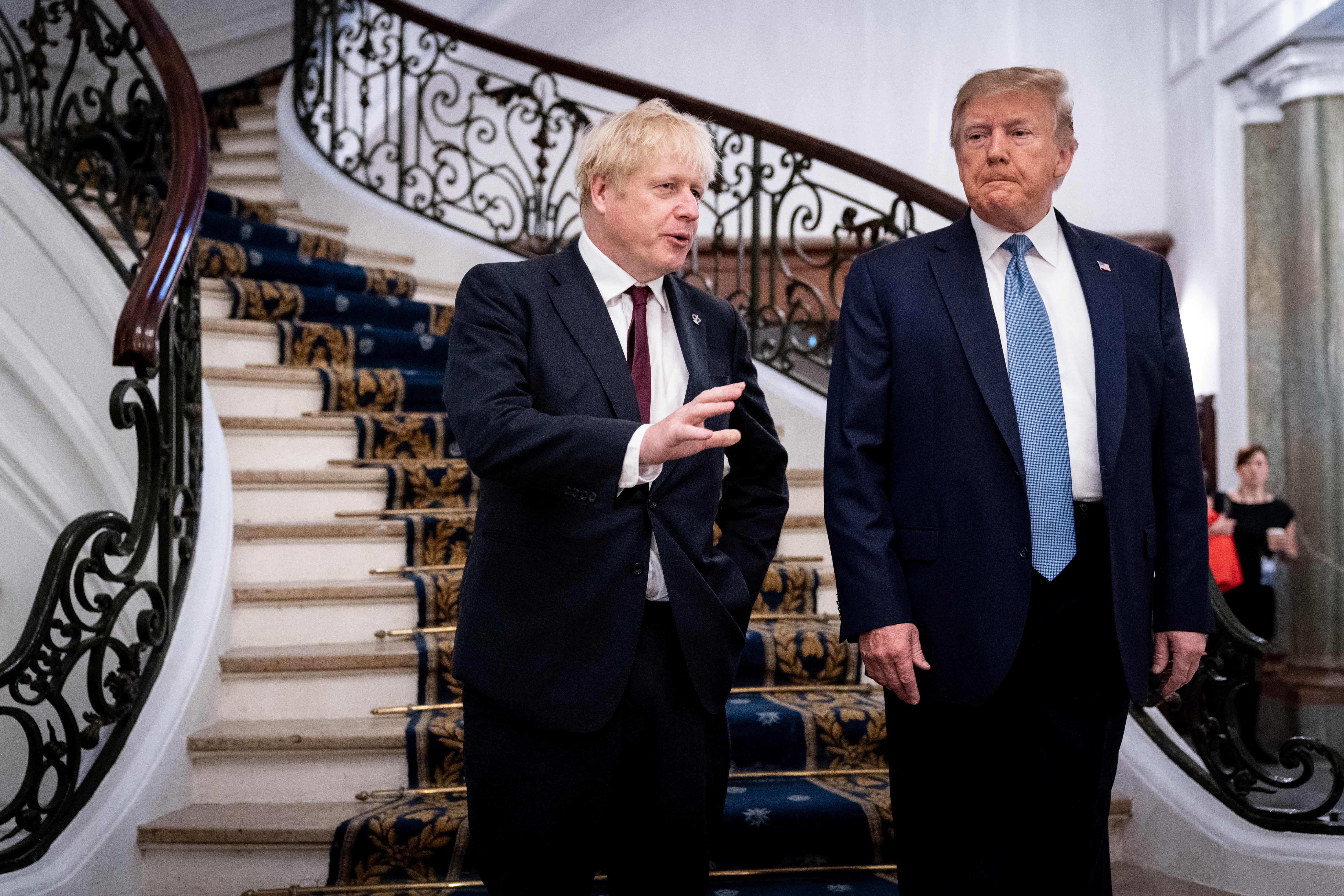What Britain does better
A six-week-long election campaign sounds pretty good right now, don't you think?


A free daily email with the biggest news stories of the day – and the best features from TheWeek.com
You are now subscribed
Your newsletter sign-up was successful
This is the editor's letter in the current issue of The Week magazine.
It is admittedly a peculiar time to envy our cousins in the United Kingdom, torn asunder as they are by Brexit. The Brits' national division is as deep and rancorous as ours, and when they sever their unfettered economic access to the 27 nations and 500 million people in the European Union, the rift will be permanent. But here's what I envy: When Parliament recently voted to hold a new election to determine whether Prime Minister Boris Johnson has enough popular support to go ahead with his Brexit plan, it set a date of Dec. 12. Johnson and his adversaries will have six weeks in total to campaign before the citizens decide their nation's future. How very reasonable — especially when compared with the U.S.'s permanent presidential campaign.
On the day he took office in 2016, President Trump officially filed to set up his re-election campaign and soon began fundraising. A stampede of two dozen Democratic candidates began jumping into the race in mid-2017. After six months of campaigning, speeches, and debates, we're still three months away from the Iowa caucuses; after that, we will be engulfed in nine more months of primary and general-election politicking, with the two parties spending as much as $10 billion to carpet-bomb us with ads. As the Brits might say, A bit excessive, don't you think? It's also admirable that the British treat their prime minister with no great deference, but rather as a hired public servant to be held to account. Every week, the PM must go before Parliament for Question Time, during which rivals and adversaries demand that he or she explain and defend his or her policies. There's plenty of wit in the exchanges, and sharp, even insulting language. It's a fine spectacle, and for the PM, a humbling one. In the U.S., it would be considered disrespectful to speak to any president this way; we have turned our presidents into kings. Given why we declared independence from Britain, that's a bit ironic, don't you think?
The Week
Escape your echo chamber. Get the facts behind the news, plus analysis from multiple perspectives.

Sign up for The Week's Free Newsletters
From our morning news briefing to a weekly Good News Newsletter, get the best of The Week delivered directly to your inbox.
From our morning news briefing to a weekly Good News Newsletter, get the best of The Week delivered directly to your inbox.
A free daily email with the biggest news stories of the day – and the best features from TheWeek.com
William Falk is editor-in-chief of The Week, and has held that role since the magazine's first issue in 2001. He has previously been a reporter, columnist, and editor at the Gannett Westchester Newspapers and at Newsday, where he was part of two reporting teams that won Pulitzer Prizes.
-
 How the FCC’s ‘equal time’ rule works
How the FCC’s ‘equal time’ rule worksIn the Spotlight The law is at the heart of the Colbert-CBS conflict
-
 What is the endgame in the DHS shutdown?
What is the endgame in the DHS shutdown?Today’s Big Question Democrats want to rein in ICE’s immigration crackdown
-
 ‘Poor time management isn’t just an inconvenience’
‘Poor time management isn’t just an inconvenience’Instant Opinion Opinion, comment and editorials of the day
-
 Epstein files topple law CEO, roil UK government
Epstein files topple law CEO, roil UK governmentSpeed Read Peter Mandelson, Britain’s former ambassador to the US, is caught up in the scandal
-
 Iran and US prepare to meet after skirmishes
Iran and US prepare to meet after skirmishesSpeed Read The incident comes amid heightened tensions in the Middle East
-
 Israel retrieves final hostage’s body from Gaza
Israel retrieves final hostage’s body from GazaSpeed Read The 24-year-old police officer was killed during the initial Hamas attack
-
 China’s Xi targets top general in growing purge
China’s Xi targets top general in growing purgeSpeed Read Zhang Youxia is being investigated over ‘grave violations’ of the law
-
 Panama and Canada are negotiating over a crucial copper mine
Panama and Canada are negotiating over a crucial copper mineIn the Spotlight Panama is set to make a final decision on the mine this summer
-
 Why Greenland’s natural resources are nearly impossible to mine
Why Greenland’s natural resources are nearly impossible to mineThe Explainer The country’s natural landscape makes the task extremely difficult
-
 Iran cuts internet as protests escalate
Iran cuts internet as protests escalateSpeed Reada Government buildings across the country have been set on fire
-
 US nabs ‘shadow’ tanker claimed by Russia
US nabs ‘shadow’ tanker claimed by RussiaSpeed Read The ship was one of two vessels seized by the US military
